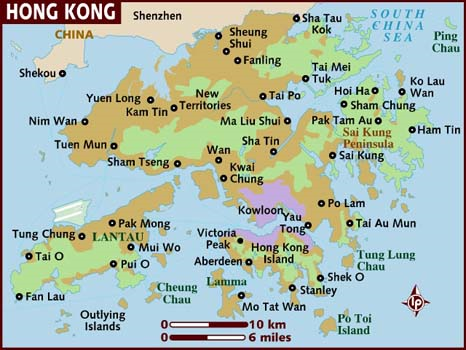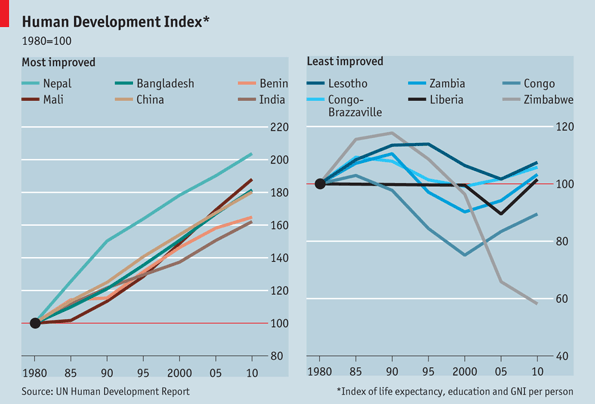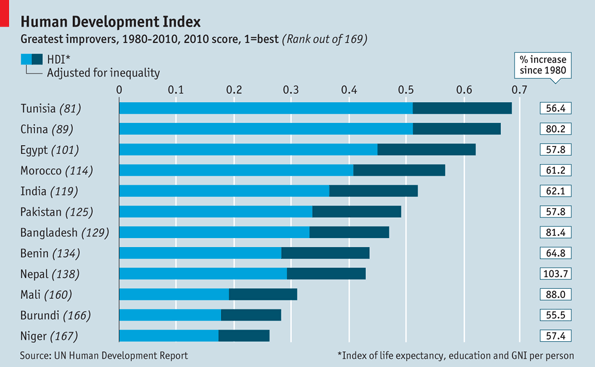Thesis statement: Most problems associated with the third world are attributed to colonialism. Some however blame the historical events. This paper analyzes developmental aspects of china in pre-colonial, colonial, post-colonial and contemporary epoch.

Pre-colonial China (1700-1919)
The Qing Empire governed China before foreigners interfered with its sovereignty in the 19th century. The influence of the traditional monarch led by Xian Feng faded so fast after the British started to export opium to the state. Opium was used by Chinese as sedative hence its higher demand. The Qing Empire opposed the move by proscribing the use of opium in the state.
The British fought back by forcing Chinese to enter into an accord referred to as Treaty of Nanking. Subsequently, the USA, France, Russia and Japan entered into a number of unbalanced accords with the Qing regime. China therefore became a feudal and majestic state (Murray and Crawfurd 102).
During Tong Zhi and Xu Guang regime, China developed a hostile foreign policy since the management of state affairs was under custodianship (Fung 17). The two boys could not rule because they were too young. Their mother was appointed to take care of state affairs on behave of the boys.
The mother ruled without consultation making the Chinese foreign policy to be hawkish. It is at this time that foreigners intensified their interests and at times conquered the empire. Qing Empire started losing control shortly after the Cixi (mother) assumed state powers (Ankerl 56).
Qing empire could not survive any more first because of the injustices it had done to people and secondly due to external pressures. The monarch had been accused of bribery and misallocation of public funds. Pressure had mounted locally since various groups and factions attacked the empire demanding for resignation of top officials and appointment of sound leaders.
A number of insurgency groups emerged for instance the Taiping uprising and the Jun Nian revolution. Simultaneously, executive committee members such as Li Hongzhang and Zuo Zongtang attempted to salvage the empire by designing policies aimed at releasing public tension. In spite of their attempts to implement change, they could not stop Japan’s conquest of China.
Advisors to the monarchy were also concerned about the system of administration because the empire decided to use the military in managing state affairs (Blecher 59). The counselors to the monarch requested the emperor to stop using force and institute a legal system that would respond to the wishes of the majority. Indeed, the emperor heeded to their call and accepted to form an egalitarian society.
This change lasted just for 103 days because the state was taken over by the foreign powers. At this era, nationalism reached its spasm and many unsung champions surrendered their lives to the struggle against foreign penetration.
The state was traumatized because many people lost their lives and the loved ones. In 1911, the Sun Zhongshan’s Xin Hai insurgency terminated the longest feudal culture in China. Emperor Pu Yi was requested to resign after the war and that served as a turning point to the Chinese political system.
Colonial China (Late 1800s-1930)
Many foreign powers were interested in annexing Chinese land because of its productivity and endowment in natural resources. All major powers such as French, British, Japanese and Americans developed interest. The world powers considered China to be with great potential for doing business. In 1840, the British kingdom launched the deadliest attacks in China with an aim of capturing the modern day Hong Kong.
After some years, Hong Kong was changed from stony undeveloped hilly region to a major route of trade. Through the opium conflict and a series of agreements, the British were capable of legally taking over the region until 1997 (Abramson 87). The British signed a contract with mainland China, which them permission to retain the colony and do business for quite some years.
The British encountered several problems while in Hong Kong mainly because of extreme variations between Eastern and Western beliefs and customs. Hong Kong was one of the earliest central Asian regions to develop and industrialize. The region benefited from foreigners because the foreign powers developed it as if it was their land.
In the 18th century, the British kingdom was firmly established in business and invasion around the globe intensified. China was the major provider of tea to British, who were locally using 30 million pounds of Chinese tea by 1830.
From the British financial perspective, Chinese tea was an essential product because it offered gigantic capital to the taipans (outsiders such as British colonists and businesspersons in China). Taxation of tea contributed 10% of the total government income (Laufer 54).
The British ambassadors never wanted to support the royal leader of China since they considered him a religious boss (Benn 70). Many Britons perceived Chinese majesty as a divine body and would relatively treat it as an equal partner in development. On the other hand, members of the Qing Empire and judges viewed the British emissaries as uncultured outsiders stringently in China for tea, silk and other Far East merchandise.
Conversely, Chinese societal structure based on Confucian values ranked traders comparatively low (less than farmers did and over slaves) because they were regarded as people who simply aimed at acquiring property (Feuerwerker 39).
The British supplied cheap goods to Chinese financial system such as clocks watches and musical boxes. The Chinese paid heavenly for such goods since they supplied tea in return. Such cheap goods were not sufficient to pay off for the trade inequity.
Ankerl observes that the activities of the state during colonialism were full of, propaganda, fear, gossip, uprisings, rebellions and immigration or displacement of persons.
The role of Hong Kong as a political safe place for Chinese political immigrants further strengthened its position and few major efforts to relapse its ownership were initiated in the early 20th century (Blecher 79). Both Chinese Marxists and separatist activists found safe haven in the region when they did not dynamically participate in the chaos in China (Ankerl 41).
Struggle for Independence (1925-1928)
After Sun’s demise in March 1925, Chiang Kai-shek happened to be the boss of the KMT. In 1926, Chiang guided the Northern Expedition through China with the aim of crushing the terrorists and unifying China. Chiang got the assistance of the Soviet Union though he shortly fired his Soviet counselors (Abramson 111).
He was sure that the USSR wanted to chuck out the separatists and capture the powers of the region. Chiang chose to hit first and eliminated the socialists, murdering thousands of them. Simultaneously, other brutal inconsistencies were happening in China. In the South, where the Leninists were in greater numbers, separatist followers were being annihilated.
These actions finally caused Chinese Civil warfare. Chiang Kai-shek pressed the socialists into the center as he wanted to obliterate them and institute an administration with Nanking as its headquarters in 1927 (MacFarquhar 7). By 1928, Chiang’s military seized the Beiyang regime and united the whole country at least technically.
Basing on the Sun Yat-sen’s premise, the KMT was to reconstruct China in three stages. A stage of martial rule would be the first where the KMT would capture authority and unite China by force. The second stage pertained to political protection and lastly a constitutional self-governing stage would follow. In 1930, the nationalists embarked on serious implementation of the second agenda (Woodward 112).
They publicized an interim constitution for political sponsorship and initiated the alleged protection phase. They were condemned for setting up despotism but alleged they were trying to institute a contemporary egalitarian society (Feis 67). Among others, they formed the university, the Central reservoir and other organizations.
Nation Development
The Republic of China was under military rule from 1948 to 1987 and much of the constitution was never applied. Political change started in the late 1970s and went on until 1990s. The reforms opened up the ROC society converting it from a dictatorial tyrannical state into a multiparty classlessness society (Fairbank 98). After abolition of military rule, the Republic of China democratized and transformed fully.
In 2000, the Democratic Progressive Party (DPP) assumed the ROC administration. This ended the ROC’s authoritarian rule under the KMT. In May 2005, a legislative body was formed. It decreased the number of senate seats and realized a number of reforms.
These changes have been approved since the legislature has chosen to eliminate itself and relocate the power of constitutional restructuring to the citizens (Teiwes and Warren 11).

Current Issues
The leading political subject in the ROC is its rapport with the PRC. For about 60 years, there were no straight transportation relations as well as direct air travels between Taiwan and mainland China. This was a setback for many Taiwanese who had plants or other businesses in mainland China. The DPP regime feared that such relations would cause rigid monetary and political unity in mainland China.
In 2006, Chen Shui-bian requested for controlled opening of relations (Korotayev 17). Other important political topics consist of the approval of weapons procurement bill endorsed by the United States 2001.
In 2008, the United States was unwilling to convey more weapons to Taiwan fearing that it would obstruct the current relations between the two states. Another major political issue is the formation of a National Communications Commission to inherit the defunct Government Information Office (Wilkinson 17).

The political leaders as well as their parties are currently the sources of conflicts. Bribery and misallocation of public funds among some DPP executives has been witnessed. In early 2006, Chen Shui-bian was associated with dishonesty. The political outcome on President Chen Shui-bian was enormous leading to split in the DPP management.
It finally precipitated the formation of a political wing guided by ex-DPP Principal Shih Ming-the. The immense wealth possessed by KMT is another main concern, as it was formerly the wealthiest political party in the earth. The grant corruption in government has affected the image of China in the international system (Terrill 8). Chinese have been labeled as fraudulent because their president was accused of money laundering.
Works Cited
Abramson, Marc. Ethnic Identity in Tang China. Philadelphia: University of Pennsylvania Press, 2008.
Ankerl, George. Co-existing Contemporary Civilizations: Arabo-Muslim, Bharati, Chinese, and Western. Geneva: INU press, 2000.
Fairbank, John. China: a new history. Cambridge, Mass: Belknap Press of Harvard University Press, 1992.
Feis, Herbert. The China Tangle: The American Effort in China from Pearl Harbor to the Marshall Mission. Princeton: Princeton University Press, 1953.
Feuerwerker, Albert. The Chinese Economy, 1912–1949. Ann Arbor: University of Michigan Press, 1968.
Fung, Edmund. In search of Chinese democracy: civil opposition in Nationalist China, 1929–1949. Cambridge: Cambridge University Press, 2000.
Korotayev, Malkov. “Historical Population Dynamics in China”. Introduction to Social Macrodynamics: Secular Cycles and Millennial Trends, 2006.
Laufer, Berthold. 1912 JADE: A Study in Chinese Archaeology & Religion. New York: Dover Publications, 1974.
MacFarquhar, Roderick. The origins of the Cultural Revolution. London: Oxford University Press, 1974.
Murray, Hugh and Crawfurd, John. An historical and descriptive account of China. Edinburgh & London: Oliver & Boyd, 1836.
Teiwes, Frederick and Warren, Sun. ‘China’s road to disaster: Mao, central politicians, and provincial leaders in the unfolding of the great leap forward, 1955-1959’. Armonk, N.Y: M.E. Sharpe, 1999.
Terrill, Ross. 800,000,000: the real China. Boston: Little Brown, 1972.
Wilkinson, Endymion. Chinese history: a manual. Cambridge, Mass: Harvard University, 2000.
Woodward, Thomas. “The Taiwanese hyperinflation and stabilization of 1945–1952”. Journal of Money, Credit & Banking, 1989.
Blecher, Marc. “Hegemony and the Workers’ Politics in China”. The China Quarterly, 2002. Benn, Charles. China’s Golden Age: Everyday Life in the Tang Dynasty. Oxford: Oxford University Press.
The Economist. “Human Development Index, developing humans”, the Economist online, 2010. Lonely planet. “Map of Hong Kong”. Web.